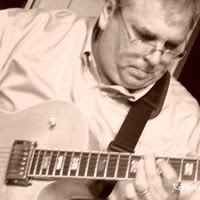What does it mean when people claim to be “self taught”? I’ve heard this from and about musicians of all calibers throughout the years. I think non-musicians may have a different view of what it means than musicians do.
A lot of the world’s greatest musicians have claims of being self taught. It applies all the way from world class musicians from the past. I’ve heard that such classical music luminaries as guitarist Andres Segovia and cellist Pablo Casals were self taught as well as Eric Clapton, your “uncle who can play anything” and that kid that lives on your street who’s starting a garage band. Yet what do we find when we look deeper?
Eric Clapton reported to Guitar Player Magazine in 1970 that “The way I learned to play was, I picked up the guitar and pieced together a chord out of the sounds without knowing they were chords that had names like E and A. I was inventing those things when I first started to play.” It’s not something that seems that unusual to me. I think a lot of musicians, guitarists in particular, do a lot of experimentation. Maybe it’s the nature of the instrument.
Both Segovia and Casals had some formal study if only for a short while and sometimes on different instruments than than the ones they were famous for. One of the key elements of these outstanding musicians, as true now as then, is originality. They both made major original breakthroughs in music by assessing the current state of their respective instruments and finding new and better ways to do things.
In the case of Segovia, among other breakthroughs, he introduced they idea of using the right hand fingernails to get a bigger tone. No classical guitarist today would even consider playing without nails but yet until he saw the need and addressed it, it was uncommon. He also asked for bigger guitars and better strings. Seems pretty obvious now, but he had enough influence, insight, and originality to ask for those things and get them.
Where would our current crop of rock guitarists be without Jimmy Page, Jimi Hendrix, Eric Clapton, etc.? Listening to these past guitar heroes now, the uninitiated may wonder, what’s so special about those cats? The thing is, the styles they brought to the table were original at the time, and so well liked, that now there influence is ubiquitous and taken for granted.
Everyone has influences and early on, musicians tend to mimic their heroes. I used to joke that I learned to play from Billy Gibbons of Z.Z. Top. Never having had the honor of meeting the man however, I made do with learning from his recordings. Wes Montgomery studied and memorized the solos of Charlie Christian - yet later on he managed to develop his own style. When Chet Atkins was getting started in the record business he was told he sounded too jazzy - his early influences included the original gypsy jazz guitarist Django Reinhardt - yet Atkins turned things around for himself devoting himself to creating and developing a new style of playing (based on a different artist - Merle Travis).
Wes and Chet, Hendrix, Page, Clapton and probably Billy Gibbons too, were undoubtedly all self taught (as were their main influences Charlie Christian and Django Reinhardt) yet they had to learn from somewhere, if only by observation. Clapton recounts “I did a lot of listening—particularly to blues. I never took lessons, but I always wanted to jam a lot.” Jamming can be thought of as a trial and error means of learning and something that goes on a lot in music that is traditionally improvised to some degree like blues and jazz. A form of discovery and self-teaching.
We listen, we observe, we get together and trade licks and information with our friends, and read and apply articles from guitar magazines, from the web, etc. If we have the benefit of formal lessons from competent instructors then all the better. In a way all of my students over the years have all been self taught. Some learned a lot and still others learned little. I’ve just given them information and tried to open their eyes to possibilities. Led the horse to water if you will. If anything was actually learned they’ve done it all themselves. Plus they’re the ones who got the ball rolling with guitar lessons.
Is anyone self taught? In a way both everyone is and no one is. No one is because no man is an island, we all work from our influences to some degree, but in the end, everyone is because it’s all up to the individual.
Subscribe to:
Post Comments (Atom)




I recently had a conversation about this with a painter friend. We've both observed that the lay person seems to put a lot of stock in the idea of an artist or musician being self-taught. "Isn't that wonderful? And I hear he was self-taught." "Ahhh." As if this made them some kind of genius or innately talented. Perhaps it does take innate talent to play music "by ear" or to paint acceptably without instruction, but that can only take you so far. If you then want to perfect your craft, who wouldn't want to get some kind of lessens from a superior artist? You've mentioned here some exalted musicians who purport to be self-taught, albeit they admit to having had influences. Perhaps that is genius, but for the average musician/artist trying to eek out a living, I would have more respect for those who seek instruction to improve their craft. Seeking instruction is a sign to me that they realize there's always room for improvement. Of course, the work is entirely up to the student. The teacher can only guide the exercise or practice.
ReplyDelete